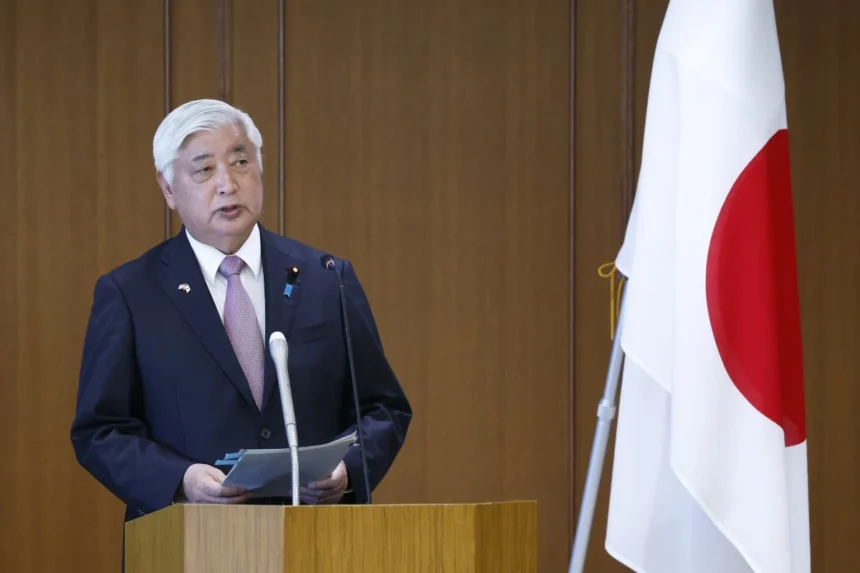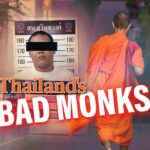TOKYO – The Japanese government has advised its companies in Taiwan to plan for a future without help from Tokyo if trouble erupts between China and Taiwan. The calls come as China continues to ramp up its rhetoric on Taiwan.
With the chance of military conflict rising, officials have quietly told business leaders they may not get evacuation support if China launches an attack. Reports from the Financial Times highlight this dramatic shift in Japan’s strategy as nerves grow about stability in the region.
Japan’s advice to its firms is a rare public sign of concern about the risks tied to mounting tensions with China. Tokyo does not officially recognize Taiwan as separate from China, and Japanese law blocks its military from carrying out direct rescue missions.
This means Japanese businesses, which hold major investments in Taiwan’s tech and manufacturing industries, could be caught in a dangerous and uncertain position. Investment flows from Japan to Taiwan have already dropped, and some firms have received clear instructions to take responsibility for their people if a crisis flares up.
Taiwan is key to the world’s semiconductor supply, thanks to giants like TSMC that support much of the global electronics market. Japanese businesses, especially in electronics and machinery, have long relied on Taiwan’s industrial strengths. The recent warning from Japan’s government shows more leaders now believe the risk of disruption has started to outweigh the economic advantages of staying.
Growing Warnings from China
China, under President Xi Jinping, has stepped up both its military and political warnings over Taiwan. Xi has made it plain that bringing Taiwan under Beijing’s control is a core target of his long-term vision for China.
In his New Year’s speech on 31 December 2024, he claimed the “historical trend” towards reunification could not be stopped, speaking just after China staged major naval drills simulating a blockade around Taiwan. Taiwanese officials criticized these activities as an attempt to make China’s military presence a regular feature near the island, with frequent warship, aircraft, and coast guard patrols intercepting ships they label as hostile.
China still treats Taiwan as a province that has broken away and refuses to rule out the use of force to achieve control. The People’s Liberation Army has increased its operations, carrying out thousands of air and naval incursions close to Taiwan. In 2024, Taiwan counted over 3,000 of these incidents, a sharp rise compared to previous years.
China has also been reported to be building up reserves of gold and expanding its ability to move troops across water, including developing new vessels that could help in any future attack. Some analysts believe China may try to be ready for military action by 2027, which marks 100 years since the PLA was founded.
Beijing has strongly opposed statements from Taiwan’s President Lai Ching-te, especially after his National Day speech in October 2024, where he said the governments in Taipei and Beijing are not subordinate to each other. China responded by launching military drills it called a clear warning against moves it sees as steps toward formal independence.
Taiwan’s Position on Sovereignty
Taiwan has run its own affairs since 1949, after the previous Chinese government moved there following its defeat by the Communists. It has never officially declared itself independent, but under the Democratic Progressive Party led by President Lai, it insists it already functions as a self-governing nation. Lai’s administration argues there is no need for a formal declaration since Taiwan’s current status makes its autonomy clear.
This position deeply upsets China’s leaders, who see any resistance to the “One China” line as a direct challenge. The Democratic Progressive Party’s refusal to accept the 1992 Consensus, which allowed some ambiguity on how “one China” is defined, has halted any formal talks between the two sides since 2016.
Lai has said he wants positive contact with Beijing based on respect, but China has dismissed these offers, accusing him of pushing for separation. In June 2024, Chinese authorities even threatened harsh punishment for strong supporters of independence, causing tension to rise even higher.
International Backing and Diplomatic Tensions
Support from Western countries, mainly the United States, remains important for Taiwan, although most countries juggle support with the “One China” policy. The US recognizes Beijing’s view that Taiwan is part of China, but still maintains unofficial ties and continues arms sales under the Taiwan Relations Act. President Joe Biden has taken a rare open stance, saying the US would step in if China attacked Taiwan, drawing sharp criticism from Beijing.
Other countries such as Japan, Australia, and several European nations have also voiced concern as China’s threats grow. NATO’s secretary general recently warned about the global impact if China acts, especially with Beijing’s strengthened partnership with Russia. Yet, only a few nations officially recognize Taiwan because of strong pressure from China.
Japan has increased informal links with Taiwan in areas like defence and trade, but avoids official recognition to steer clear of angering China. Its most recent warning to Japanese businesses operating in Taiwan shows just how tricky it is to support Taiwanese interests while managing sensitive relations with Beijing.
Xi Jinping and the One China Policy
President Xi’s campaign to secure control of Taiwan relies on the Communist Party’s view that the island is not separate from the mainland. The “One China” policy, agreed by most countries, recognizes Beijing as China’s sole government. In recent years, the Chinese government has shifted its position from encouraging peaceful union to hinting it might use force if Taiwan moves towards formal independence or if talks fail.
Xi says Taiwan could be ruled under the same “one country, two systems” plan as Hong Kong, but this has little public support in Taiwan, where most people want to keep their current freedoms or move towards official independence. Past surveys within mainland China showed some public support for taking Taiwan by force, though interest is less strong in cities close to Taiwan.
Japan’s recent warnings suggest a new wave of caution about the risks near Taiwan. For companies with big investments on the island, Tokyo’s message is blunt: if fighting starts, they might not be able to count on Japanese help. For Taiwan, this highlights just how exposed the island is as China’s military pressure rises and Western support remains limited by diplomatic deals.
President Lai must manage these growing risks while keeping lines with China open. With China’s military aiming to boost its readiness by 2027 and Xi ramping up pressure, tensions in the Taiwan Strait look set to remain high. Countries watching Japan’s careful steps may take note and rethink their plans, but for now, the sense is growing that businesses and people in Taiwan could face even tougher challenges in the future.














